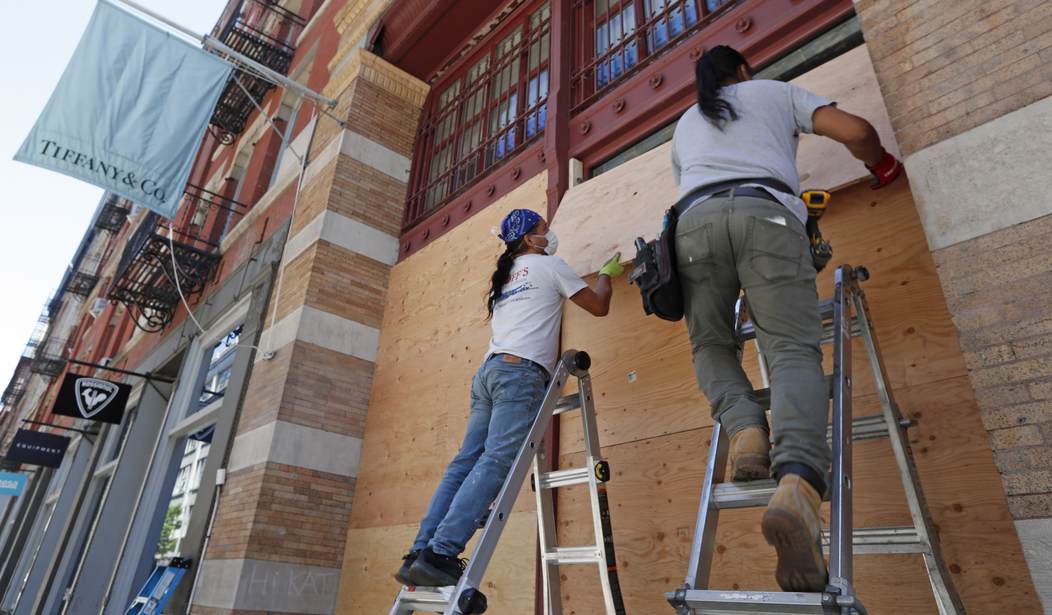"What gives urgency to debates about race in America today -- and what drives the reparations movement, are two basic facts," Walter Russell Mead writes in the Wall Street Journal.
The first, he says, is that "The median white household has a net worth of $171,000, roughly 10 times the median net worth of black households." The second is that the gap "is essentially unchanged from the levels of 1962." The persistence of this gap advances the case, advocates say, for racial reparations.
Like Mead, I find the case unpersuasive, and for reasons beyond those he mentions. For one thing, dollar measures of wealth, like Mead's and like those reported annually by the Federal Reserve, can be misleading.
That's because wealth accumulation is a lifelong process. A large majority of Americans in their 20s have zero wealth; with college loan and consumer debt, the median 20-something may have a negative net worth. This is a feature, not a bug, of a sensible economic system. We don't want young adults to start off with significant wealth.
Most Americans accumulate wealth over a working lifetime, and wealth accumulation tends to peak between ages 55 and 64. After 65, they tend to spend it down. So one way to gauge wealth accumulation is to look at the data for people in that age group. Another is to compare the progress toward wealth accumulation those in younger age groups have made compared with that of their counterparts in the past.
Overall figures are less helpful because they include all age groups and thus include many who have not yet accumulated significant wealth. They also tend to slightly overstate the racial gap in wealth accumulation, since Blacks are on average younger than whites. They are also less likely to live in married-couple households, which tend to accumulate wealth more than households headed by the single and divorced.
Recommended
But let's assume that the white-Black wealth gap in the peak wealth-accumulation age group is basically the same 10-1 gap Mead mentions. Why should it be so great?
Most wealth is accumulated in one of two forms, residential real estate and financial instruments. In both areas, Blacks face significant difficulties in accumulating wealth.
It's easy to understand why Blacks tend to accumulate less in financial instruments than whites: Their income tends to be significantly lower, and it takes money -- money you don't have to spend immediately on necessities -- to purchase financial instruments.
As for residential real estate, despite open housing laws and the dispersion of many Blacks into non-majority-Black neighborhoods, most Black Americans still live in majority-Black neighborhoods. And those neighborhoods, to varying extents, tend to have much higher rates of violent crime than other neighborhoods.
And violent crime depresses housing values. How much? Not just marginally. The gap Mead cites -- $117,000 median wealth for whites, about 10 times the $17,100 for Blacks -- is not dissimilar to the gaps in housing values for similar structures in many Black neighborhoods in Detroit (to take one example) and one of its modest-income largely white suburbs, Roseville. Compare the Zillow values for Roseville in Macomb County ($119,331) to, just a couple miles away, those of the Detroit ZIP code 48234 ($27,541).
"Violence and crime are a confiscatory tax on what people would otherwise earn and accumulate over a lifetime," I wrote in a Washington Examiner column early this month. It is a fact, tragic and regrettable, that Blacks are much more likely than non-Blacks to commit violent crimes, and that violent crime rates in heavily Black neighborhoods tend to be much higher than average. Homebuyers are simply not willing to spend as much money (and to invest as much in what may be their greatest opportunity for wealth accumulation) on houses in neighborhoods with five to 10 to 15 times the violent crime rate of many alternatives.
The sharp reduction in violent crime rates since 1990 has increased the housing values in heavily Black neighborhoods and thus increased wealth accumulation by Black Americans over that time. Further reductions in violent crime rates could go some distance to enable Black Americans to accumulate wealth and perhaps narrow the wealth gap Walter Mead describes. Increasing violent crime rates -- one possible result of the Black Lives Matter protests and recent violent rioting -- could have the opposite effect, as it did after the violent rioting half a century ago.

























Join the conversation as a VIP Member